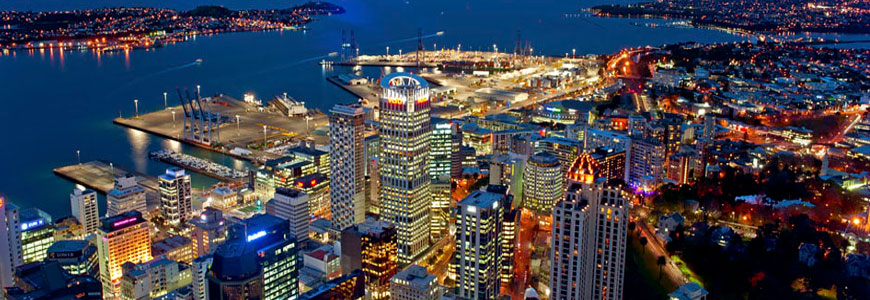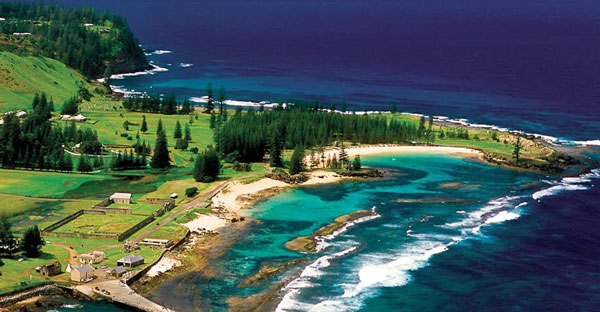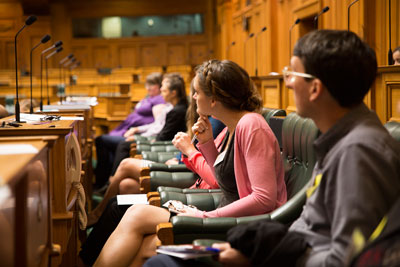



STUDENT VISA - TOURIST VISA
: 98552-36041, 99140-24043
: 0183-5061957
: support@wasuoverseas.com


New Zealand, about 1,250 mi (2,012 km) southeast of Australia, consists of two main islands and a number of smaller outlying islands so scattered that they range from the tropical to the antarctic. The country is the size of Colorado. New Zealand's two main components are the North Island and the South Island, separated by Cook Strait. The North Island (44,281 sq mi; 115,777 sq km) is 515 mi (829 km) long and volcanic in its south-central part. This area contains many hot springs and beautiful geysers. South Island (58,093 sq mi; 151,215 sq km) has the Southern Alps along its west coast, with Mount Cook (12,316 ft; 3754 m) the highest point. Other inhabited islands include Stewart Island, the Chatham Islands, and Great Barrier Island. The largest of the uninhabited outlying islands are the Auckland Islands (234 sq mi; 606 sq km), Campbell Island (44 sq mi; 114 sq km), the Antipodes Islands (24 sq mi; 62 sq km), and the Kermadec Islands (13 sq mi; 34 sq km).
Government: Parliamentary democracy.
History: Maoris were the first inhabitants of New Zealand, arriving on the islands in about 1000. Maori oral history maintains that the Maoris came to the island in seven canoes from other parts of Polynesia. In 1642, New Zealand was explored by Abel Tasman, a Dutch navigator. British captain James Cook made three voyages to the islands, beginning in 1769. Britain formally annexed the islands in 1840.
The Treaty of Waitangi (Feb. 6, 1840) between the British and several Maori tribes promised to protect Maori land if the Maoris recognized British rule. Encroachment on the land by British settlers was relentless, however, and skirmishes between the two groups intensified.

From the outset, the country has been in the forefront in instituting social welfare legislation. New Zealand was the world's first country to give women the right to vote (1893). It adopted old-age pensions (1898); a national child welfare program (1907); social security for the elderly, widows, and orphans, along with family benefit payments; minimum wages; a 40-hour workweek and unemployment and health insurance (1938); and socialized medicine (1941).
New Zealand fought with the Allies in both world wars as well as in Korea. In 1999, it became part of the UN peacekeeping force sent to East Timor. In recent years, New Zealand has introduced extremely liberal social policies. In June 2003, parliament legalized prostitution and in Dec. 2004, same-sex unions were recognized. In 2005, Helen Clark was reelected.
If you're wondering whether New Zealand is the right place to study for you, we outline some of the main reasons why the international student population in New Zealand has grown rapidly in recent years.
The New Zealand university system is research-based, as it is historically based on the British higher education model. This means there are a number of similarities between the 2 systems, such as the names of qualifications, teaching methods, and the look and feel of the university campuses.
Allacademic staff are expected to be active researchers as well as teachers. This insistence on research-informed teaching ensures a high quality learning experience. International students are welcomed by New Zealand society, both for the cultural diversity they bring and their contribution to the economy.

They are gladly received into New Zealand homes and student social networks. New Zealanders are well travelled, with a great interest in people from other cultures, so visitors and international students soon feel more than welcome.
Campuses are highly international, with students from all corners of the globe studying and socialising together. Students come from Europe, South East Asia, the UK, North Asia, Japan, South America, India, and Australia, amongst many others.
New Zealand also has a well-developed system of pastoral care for international students, backed by a government-monitored Code of Practice. This means you will be well looked after during your time studying there.